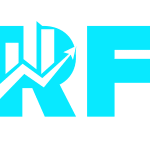How Do Prop Firms Make Money?

Most prop firms make money through the following business models: the profit-split strategy, copy trading, and failed challenge account fees.
1. Profit-Split Model
This is the primary source of income for proprietary trading companies.
In this revenue model, they take a percentage or cut from a profitable trader’s earnings each time a withdrawal is made from the funded account.
More successful and profitable funded traders mean a higher profit share for the company.
2. Copy Trading
These firms monitor the trading records of their experienced, successful funded traders, assess their risk management, and may “copy” their trades to generate additional income.
3. Failed Challenge Accounts
To access funding from a trading firm, a potential trader must purchase a challenge account, where his trading skills and risk management strategies are tested and evaluated.
In other words, he must pass the program criteria to receive funding.
If the trader fails, they lose access to funds, and the fee paid for the training account goes to the firm.
The more traders fail this phase, the more revenue it generates for the firm.
FAQs
Do prop trading firms also make money from losing trades?
No, these firms do not profit from your losing trades.
Their revenue streams primarily come from profit-sharing, copy trading, and failed challenge accounts, as explained above.
What happens if I lose money on a funded account? Would I have to pay it back?
You would not be required to pay back any losses on a funded account.
The firm assumes the risk of loss.
You do not owe trading companies if you lose your trades or deplete your account.
Do proprietary trading firms offer salaries to their traders, or is compensation purely performance-based?
Most of these companies offer performance-based compensation to traders.
Your trading profits are effectively your compensation.
How is profit-sharing structured in proprietary trading companies?
The profit-sharing structure between traders and the firms can vary depending on account or program types.
Many companies allow traders to keep between 50% and 90% of their profits.
What initial capital requirements are needed to start a prop trading business?
Initial capital requirements vary between organizations.
Research can help you find affordable trading companies or programs.
With as little as $25, it’s possible to start in the prop trading industry.




